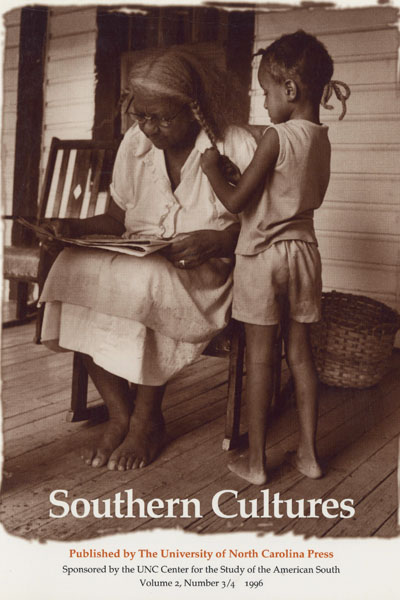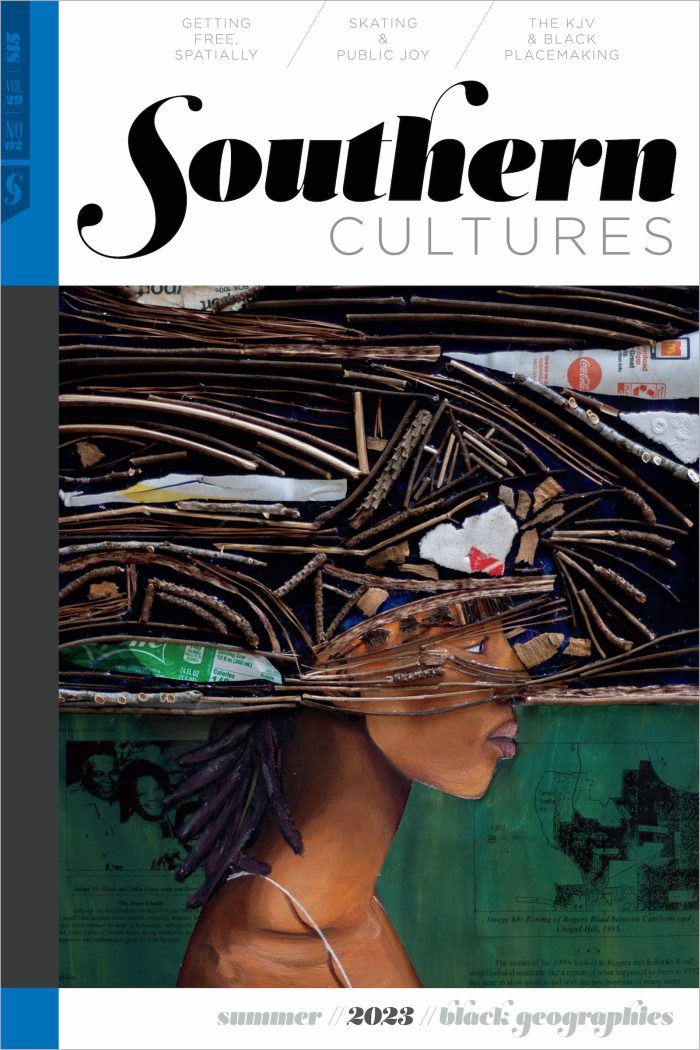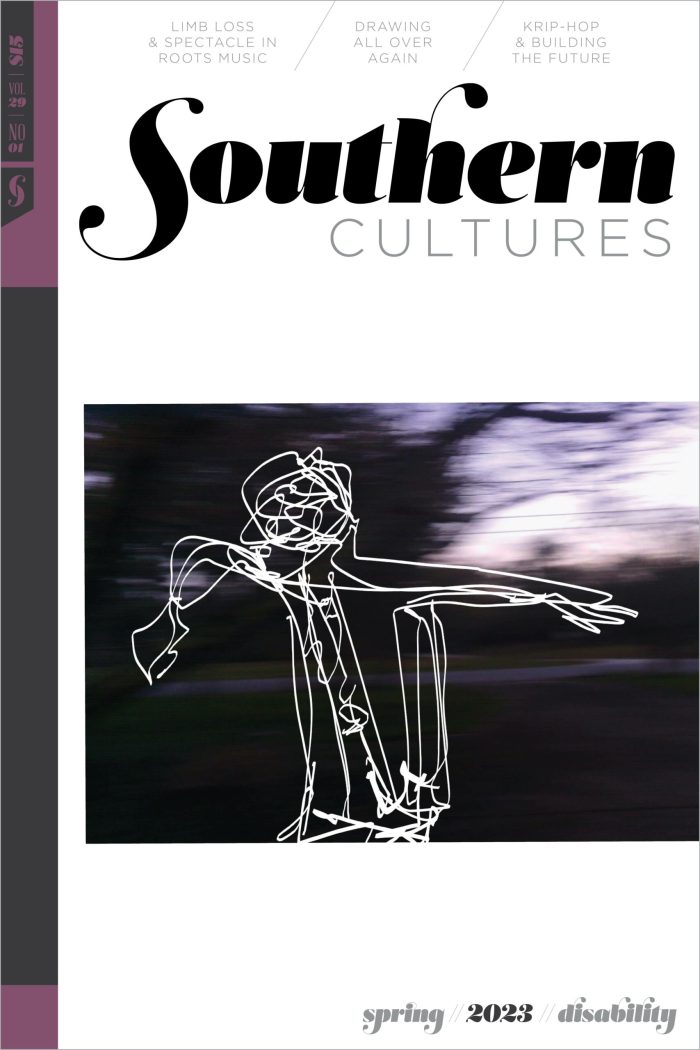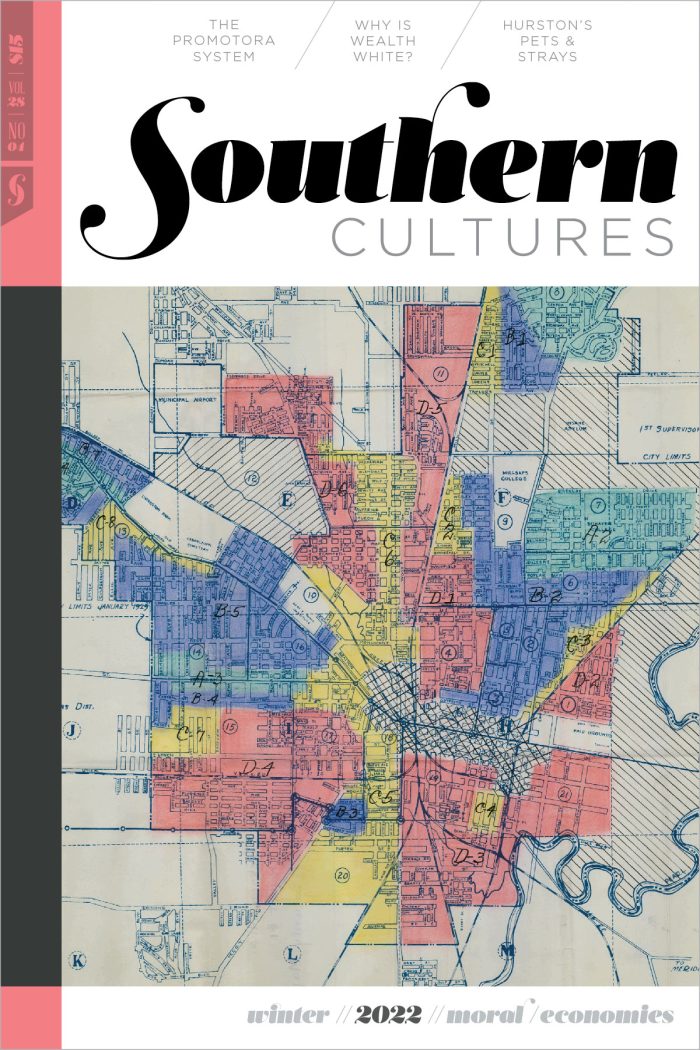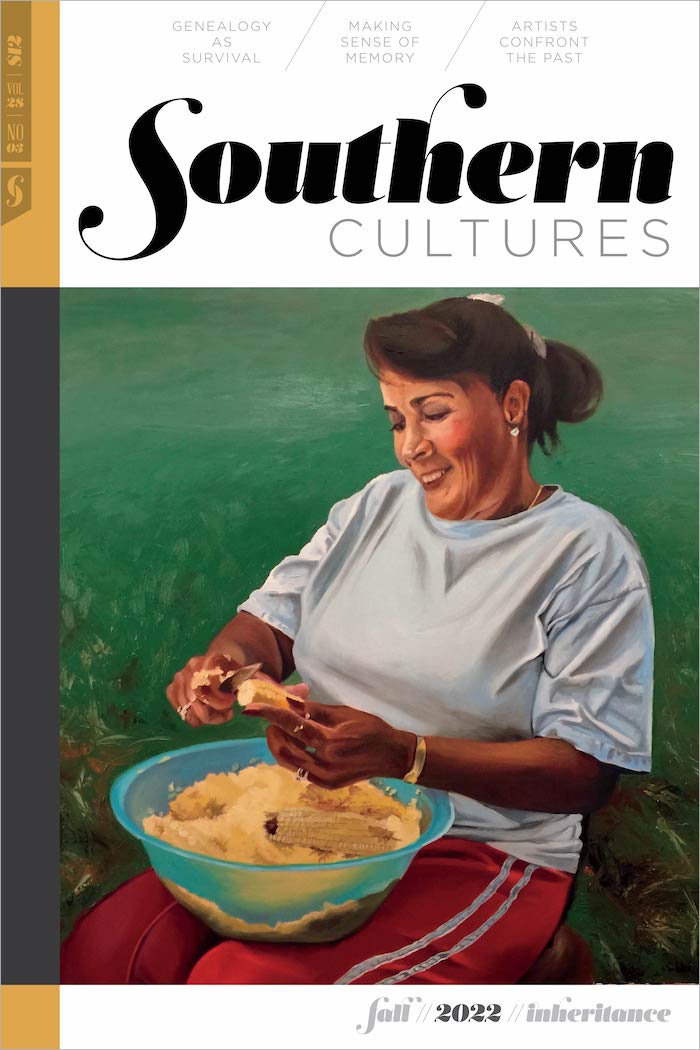BUY ACCESS
by Harry L. Watson
“It will come as no surprise to modern South-watchers that things just aren’t what they used to be.” It will come as no surprise to modern South-watchers that things just aren’t what they used to be. You can’t count on getting sweet tea anymore. Mississippi votes Republican. Jim and Tammy Faye broke up. And Southern »
BUY ACCESS
by Hodding Carter III
“Can a prominent Mississippi liberal love the Battle Flag? The answer may surprise you.” When I went to work for Jimmy Carter, I left the South I had known. It’s now been nineteen years since I came to perch here on the outer rim of northern Virginia, and no one is more aware than I »
BUY ACCESS
by Thomas Harvey
“Tupelo is one of the most-mentioned place names in southern geography. The author takes a look at Tupelo’s evolving image.” I am interested in landscape, local history, and sense of place. This is a common avocation for southerners; we identify strongly with our region. I am particularly fascinated by Tupelo, Mississippi. I was born there »
BUY ACCESS
by Shane K. Bernard
“Like zydeco and Cajun music, swamp pop is vital to the cultural identity of Cajun and Creole country.” Swamp pop music is a rhythm and blues idiom that combines elements of New Orleans rhythm and blues, country and western, and Cajun and black Creole music. Highly emotional, colorful lyrics, tripleting honky-tonk pianos, bellowing horn sections, »
BUY ACCESS
by Dwight K. Billings,
Kathleen M. Blee
Convinved in advance that mountain people were benighted and degenerate, outsiders shaped the lore of feuding to suit their own purposes. In his 1901 essay “The Kentucky Mountaineer,” novelist John Fox, Jr., inscribed the mythic image of the southern mountaineers: “proud, sensitive, kindly, obliging in an unreckoning way that is almost pathetic, honest, loyal, in »
BUY ACCESS
by Lacy K. Ford
“The distinguished South Carolina journalist grappled with the issues of class, race, and industrialization in the South of the 1930s and 1940s.” In the summer of 1939, Ben Robertson, former White House correspondent for the Associated Press, traveled from Clemson to Atlanta hoping to write a feature on Margaret Mitchell, the newly famous author whose »
BUY ACCESS
by Bryant Simon
“The author explores deep divisions between early-twentieth-century South Carolina’s farmers and mill hands as seen in the work of Erskine Caldwell and in recent labor history.” Will Thompson is a worker, a white southern mill worker. He is not a tenant farmer turned mill worker; he is a lifelong mill worker. “The sight of the »
BUY ACCESS
by Brian Ward
NYU Press, 1995 In recent years, Mississippi has become a sort of totem for historians of the black freedom struggle, much as it was for the civil rights workers of the early-to-mid-1960s. Movement supporters once believed that if unregenerate Mississippi, the ultimate “closed society,” could be brought to heel then black freedom in the United »
BUY ACCESS
by Lacy K. Ford Jr.
The University of North Carolina Press, 2007 George Rabie has written a balanced, perceptive, and thoroughly researched history of high politics in the Confederacy. His compelling argument is succinctly summarized by the book’s subtitle, “A Revolution Against Politics.” Rabie maintains that the Confederacy is best understood not as an experiment in southern nationalism but as »
BUY ACCESS
by John Salmond
ILR Press, 1994 This modest little book makes a big contribution to our understanding of the complex relationship between the civil rights and labor movements during the 1950s and 1960s. In particular it challenges the contention, voiced by some practitioners of the “new labor history,” that the American Federation of Labor and Congress of Industrial »
BUY ACCESS
by Clarence L. Mohr
The University of North Carolina Press, 1997 Throughout much of the present century, the University of North Carolina has been a crown jewel of southern higher learning. Embodying the substance of things hoped for in neighboring states, the North Carolina system eclipsed all regional competitors in the decades surrounding World War II and acquired a »
BUY ACCESS
by Charles Pete T. Banner-Haley
University of Arkansas Press, 1994 South Carolina has loomed large in southern studies and properly so. It is a state that has a rich and diverse history not only regionally but also nationally. Well known as the first state to secede and thus plummet the nation into the Civil War, South Carolina is also a »
BUY ACCESS
by James Applewhite
North Carolina Wesleyan College Press 1995, 1993 The editor’s introduction to Good Country People suggests that this fascinating volume is to be the first of a series. We should hope that this is so. These authors’ fresh looks at the complex world of Eastern North Carolina are “irregular” only in their avoidance of academic jargon »
BUY ACCESS
by Karen L. Cox
University of North Carolina Press, 1993 Interest in the South’s Lost Cause celebration is currently enjoying a revival. While Charles R. Wilson’s Baptized in Blood (1980) and Gaines M. Foster’s Ghosts of the Confederacy (1987) still remain the standard works on the subject, there are a number of graduate students whose research on southern women’s »
BUY ACCESS
by Christopher Silver
University of North Carolina Press, 1994 In the mid-1980s, the Valentine Museum, whose self-appointed role is to chronicle Richmond, Virginia’s rich history, embarked upon an ambitious and controversial enterprise. Through a variety of experimental activities, the Valentine sought to create new museum exhibitions that incorporated recent urban historical scholarship and, at the same time, to »
BUY ACCESS
by Michael Luster
The University of Tennessee Press, 1994 Hard against the Atlantic and Gulf shores of the American continent swim vast schools of menhaden, a rarely eaten fish but one of great economic and social value to those who depend upon it for their livelihood. The fish are rich in oil used for cosmetics, vitamins, and fine »
BUY ACCESS
by John Shelton Reed
“Examining the persistence of a pyrotechnic custom.” Like the Chinese, southerners have long been inclined to welcome the New Year with fireworks or, lacking those, with gunfire. When the Southern Focus Poll asked, “Have you ever set off fireworks or fired a gun to celebrate New Year’s Eve?” 60 percent of native southerners acknowledged having »
BUY ACCESS
by Steve Green
“A firsthand look at the artisitc and business records of south Louisiana’s Goldband enterprises.” In spring 1995 the Southern Folklife Collection at the University of North Carolina at Chapel Hill acquired a rich group of archival records from Goldband Recording Corporation, a small but important recording studio that has operated out of Lake Charles, Louisiana, »
BUY ACCESS
by Trudier Harris,
Roland L. Freeman
“I have recently been reflecting on the significance of the porch in the South, on what that space allows and what it means.” I have recently been reflecting on the significance of the porch in the South, on what that space allows and what it means. I have been thinking about the history of sharing »
